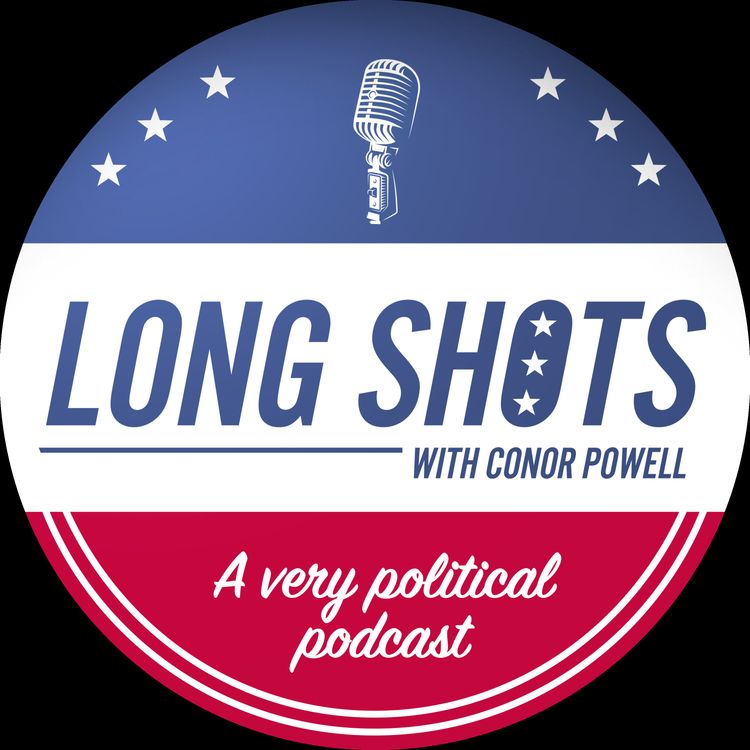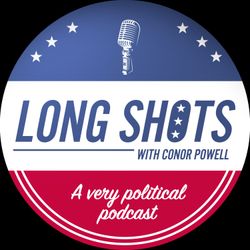Share

Long Shots
Victoria Woodhull: "Mrs. Satan"
Ep. 5
•
Victoria Woodhull had a few things stacked against her: She ran for president a half century before women had the right to vote. She ran on a platform of sexual and gender equality that so enraged her political enemies they passed laws to silence her. She spoke about free-love nearly a century before the sexual revolution. Her running mate was a Black man and former slave. Oh, and she spent Election Day behind bars. Indeed, Woodhull might be the longest long shot of them all -- a candidate so visionary she'd still be considered an edgy progressive today. Her Long Shot campaign came in 1872.
More episodes
View all episodes

8. Ross Perot: The Chaos Candidate
46:55||Ep. 8Texas billionaire and political outsider Ross Perot rode a wave of economic angst to become the front-runner in the 1992 race for the White House. Self-funded and politically independent, Perot tapped into America's growing mistrust of the major parties. He lambasted Democrats and Republicans alike for irresponsible spending and bad economic policies. Meantime, the natural showman turned infomercials into a new kind of fireside chat: His pie charts and homespun humor connected with voters in a way never seen before.Ultimately, the Perot train jumped the rails one too many times. The chaos turned voters off. But not before Perot made his priorities of lowering the debt and trade protectionism the centerpieces of our national debate.Privacy Policy and California Privacy Notice.
7. Pat Robertson: Rise of the Christian Right
45:30||Ep. 7Before 1988, evangelicals voted more on moral grounds than as a partisan bloc. Then came the charismatic Pat Robertson. Through his work on the Christian Broadcasting Network and his campaign to succeed Ronald Reagan as the GOP standard bearer, Robertson helped push evangelicals firmly into the Republican camp -- so much so that when twice-divorced Donald Trump ran in 2016, he had their solid support.Even though he lost, Robertson and CBN helped remake the media landscape, showing the way for a right-wing media (aka Fox News) that blamed everything bad on the liberals.Privacy Policy and California Privacy Notice.
6. Pat Buchanan: Before There Was Trump
46:17||Ep. 6Long before Rush Limbaugh and Fox News dominated conservative media, there was Pat Buchanan. In 1992, the CNN commentator launched a campaign of searing rhetoric, economic nationalism, and strident morality against President George H.W. Bush. With his long-shot candidacy aimed at the Republican establishment, Buchanan created the modern blueprint to woo angry, disillusioned, white working-class voters -- the very blueprint Trump would use in 2016.Privacy Policy and California Privacy Notice.
4. Herman Cain: The Godfather
35:58||Ep. 4Many pundits dismissed businessman Herman Cain as an entertaining, if inept, sideshow during the 2012 Republican presidential primary. But the former Godfather’s Pizza CEO struck a nerve among conservatives craving a candidate who would 'tell it like it is'. Indeed, Cain, who came up in the Tea Party movement, led the GOP contest just weeks before the first votes were cast -- then an avalanche of sexual misconduct accusations derailed him. A closer look reveals Cain was an entertainer, yes, but also a window into the soul of the modern Republican Party, which would come to embrace another entertaining CEO, Donald Trump, just four years later.Privacy Policy and California Privacy Notice.
3. Eugene V. Debs: The American Socialist
40:07||Ep. 3American presidential candidates aren’t supposed to be convicted criminals, let alone socialists. But in 1920, nearly one million Americans cast their vote for the Socialist Party nominee as he campaigned from a U.S. federal prison: Eugene V. Debs, prisoner 9653.This was Debs fifth presidential run and his last. Incarcerated on charges of sedition, Debs committed an act of political defiance that shook America and set the stage for a new kind of Democratic Party, one that would embrace the likes of Vermont Sen. Bernie Sanders a century later.Privacy Policy and California Privacy Notice.
2. Jesse Jackson: The Rainbow Coalition
54:51||Ep. 2In 1984, the Rev. Jesse Jackson had little hope of winning the Democratic Party presidential nomination. He was a Black man without the backing of the African American political establishment; a Civil Rights veteran in an era of corporate triumphalism and Top Gun patriotism.But to the cries of “Run, Jesse, run," Jackson launched an improbable campaign for the White House. He assembled a 'Rainbow Coalition' of supporters who not only changed the face of the Democratic Party but changed the perception of who could be a national presidential candidate - making the winning campaign of Barack Obama possible three decades later.WARNING: This episode contains racial epithets used to provide historical and journalistic context.Privacy Policy and California Privacy Notice.
1. George Wallace: The Voice of White Resentment
35:09||Ep. 1In 1972, Alabama Governor George Wallace ran for president and tapped into a strain of white resentment towards Civil Rights legislation and court-mandated bussing. When he was shot on the campaign trail, President Nixon saw an opportunity to derail Wallace’s surging political momentum and embarrass the Democratic Party. With never before heard White House audio, Long Shots uncovers a little-known criminal conspiracy hatched a month before the bungled break-in at the Watergate Hotel.WARNING: Includes a historical figure's use of a racial epithet.Privacy Policy and California Privacy Notice.
Introducing Long Shots
03:10|History might be written by the winners, but presidential politics is often shaped by the Long Shots. This is the story of how eight presidential candidates lost the race for the White House but permanently changed America's political landscape - right up until today. Long Shots premiered April 30.Privacy Policy and California Privacy Notice.